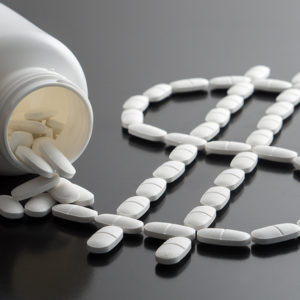As COVID-19 deaths in the United States approach 100,000 and unemployment levels continue to set records, Americans are faced with the realization that the devastation from this virus will last long past any “flattening of the curve” or the gradual reopening of state and local economies.
Consumers face increasingly daunting challenges in paying for the necessary drugs that preserve their health.
Unfortunately, the federal government is now poised to undermine vital patient assistance programs that enable sick and vulnerable individuals to access essential drugs.
The only beneficiaries of this anti-consumer policy are the middlemen — insurance companies and pharmacy benefit managers who stand to gain the most from the government’s current position.
Pharmaceutical manufacturers have been offering cost-sharing assistance to patients for years in order to improve access to the drugs they need, and millions have benefited as a result. Many of these patients also suffer from chronic diseases, making their out-of-pocket cost requirements for medicines simply unattainable.
This has so far been an effective means of improving access and adherence to critical treatments. And until recently, government guidance supported this successful approach.
That changed on May 7, when the Department of Health and Human Services (HHS) finalized its 2021 Notice of Benefit and Payment Parameters (NBPP), reversing course on its own standing policy.
Previous guidance provided that cost-sharing assistance would count toward patients’ annual limitation on cost sharing whenever a “medically appropriate generic equivalent” was not available. In other words, patients benefit from manufacturer assistance on expensive drugs and pay less out-of-pocket at the pharmacy counter.
Medications for rare and chronic conditions are often both expensive and one-of-a-kind. In response, manufacturers have traditionally offered cost-sharing assistance that significantly help patients afford these medicines, while also allowing them to benefit from the full out-of-pocket cost of a drug counting toward their required out-of-pocket maximum.
HHS is now allowing plans to eliminate this second benefit. Patients will still receive discounted medicines, but they must fork over even more money each year in order to meet the cost-sharing threshold required by their insurance plan. In many cases, this can negate the benefits of any cost-sharing assistance received in the first place.
Reversing HHS’s cost-sharing assistance requirement is a major win for insurance companies and pharmacy benefit managers. These health care middlemen are now incentivized to operate accumulator adjustment programs that reduce patients’ access and increase their out-of-pocket costs.
Because pharmacy benefit managers and insurers are concentrated among a small group of major players, they can exert significant leverage in the marketplace, absorbing an increasing share of manufacturer rebates and shifting costs to patients.
In this backward scenario, cost-sharing assistance meant for consumers are instead absorbed by health care behemoths profiting from a higher price tag on essential, lifesaving treatments.
In response, patient advocacy groups, manufacturers and pharmacists can only urge patients to plead with their insurance companies to not implement accumulator adjustment programs.
Instead, insurers and pharmacy benefit managers are poised to earn record profits despite the historic economic downturn brought on by the continuing health crisis. A lifeline for health care’s middlemen, most of whom are under pressure to steeply discount or offer COVID-19 testing and treatment for free, the 2021 guidance allows these companies to take advantage of patients to pad profits and offset costs.
Especially now, patient affordability is critical. In the absence of proven treatments or a vaccine for the coronavirus, our own health is our only line of defense. Coupled with nearly 30 million lost jobs, money is tight for families across the country.
HHS’s 2021 NBPP puts patients at risk of deciding between putting food on the table or purchasing their medicines, and this is a risk we simply cannot afford to take.
This policy is at odds with the Trump administration and congressional lawmakers who have prioritized drug affordability for years. It should not take a crisis of this magnitude to highlight why cost-sharing assistance on prescription drugs for at-risk patients is good public policy.
HHS’s 2021 NBPP shifts cost savings from patients to large health care middlemen, and it could quite literally have lifesaving consequences during the current crisis.
The administration should reverse course on this misguided effort.

